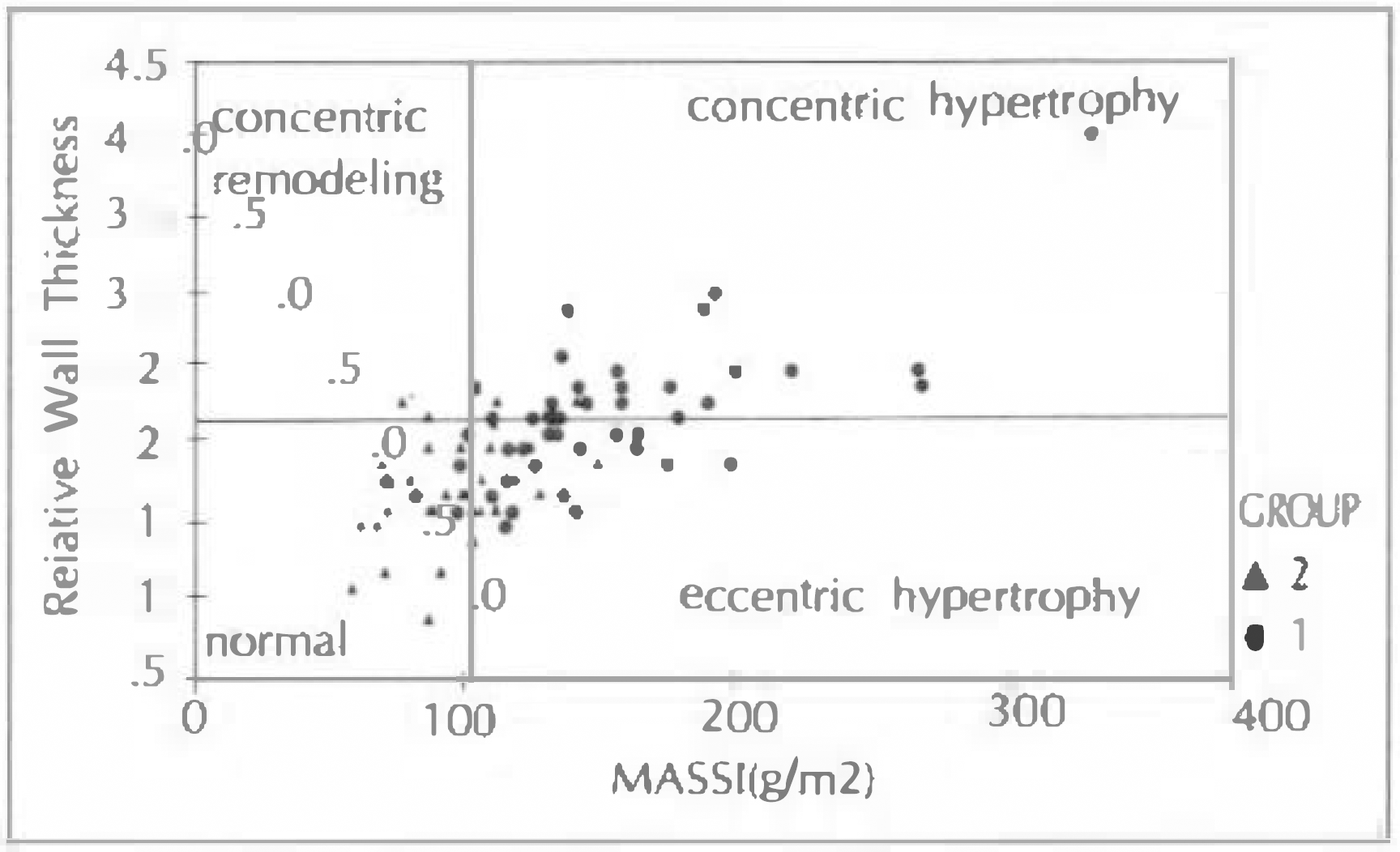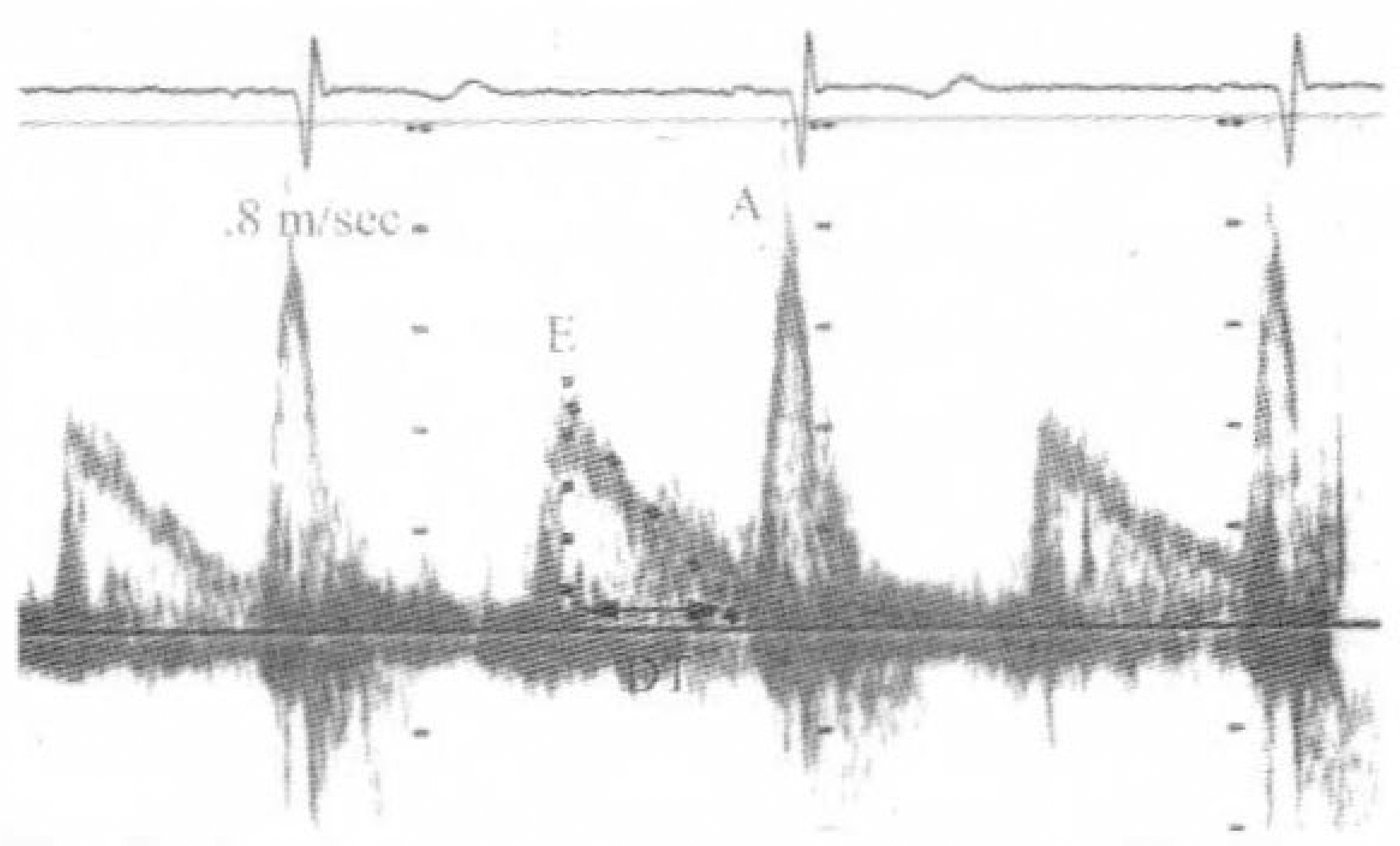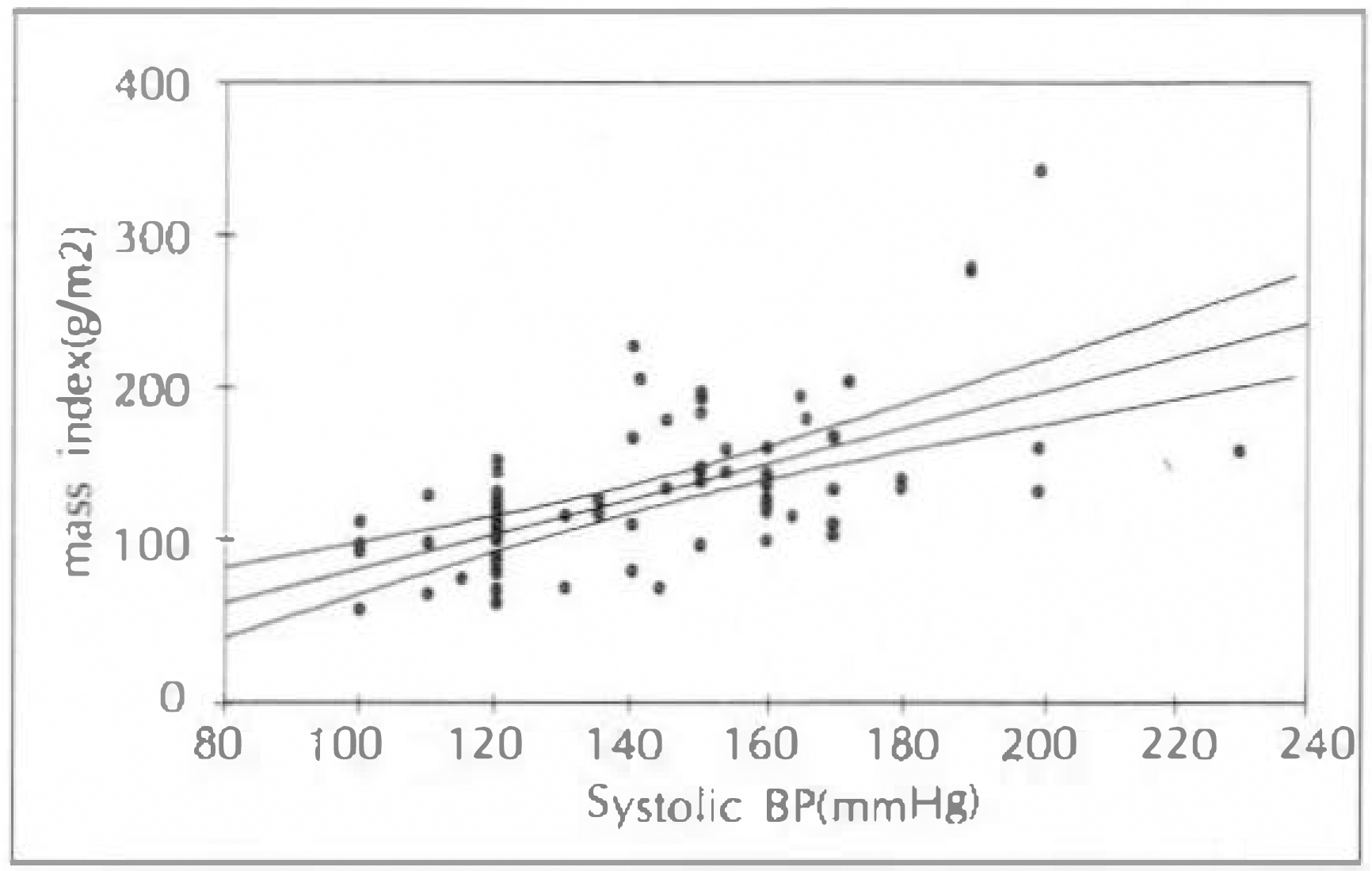1). Casale PN, Devereux RB, Milner M, Zullo G, Harshfield GA, Pickering TG, Laragh JH. Value of echocardiographic measurement of left ventricular mass in predicting cardiovascular morbid events in hypertensive men. Ann Intern Med. 105:173–178. 1986.

2). Koren MJ, Devereux RB, Casale PN, Savage DD, Laragh JH. Relation of left ventricular mass and geometry to morbidity and mortality in uncomplicated essential hypertension. Ann Intern Med. 114:345–352. 1991.

3). Levy D, Garrison RJ, Savage DD, Kannel WB, Castelli WP. Prognostic implications of echocardiographically determined left ventricular mass in the Framingham heart study. N Engl J Med. 322:1561–1566. 1990.

4). Shepherd RFJ, Zachariah PK, Shub C. Hypertension and left ventricular diastolic function. Mayo Clin Proc. 64:1521–1532. 1989.

5). Grossman W, Jones D, McLaurin LP. Wall stress and patterns of hypertrophy in the human left ventricle. J Clin Invest. 56:56–64. 1975.

6). Strauer BE. Structural and functional adaptation of the chronically overloaded heart in arterial hypertension. Am Heart J. 114:948–957. 1987.

7). 조 정 휘 – 김 권상 김 영 식 · 송정상 u�종화. 고혈 암 환자에서 Doppler싱 초음따도플 이 용한 화 싱 실 확장기 기 능 에 관 한 연구. 순 환 기. 17:621–626. 1987.
8). 정 영 호 신 순철 · 양숭진 · 박상진 · 검 숭관 · 조정 관 · 박종춘 · 강정채. 좌심 설 비 대 가 중등도 고힐압 환자에서 좌 심 실 이 완기없 는기 능경증에 관및 한 연구 순환기 1. 7:627–636. 1987.
9). 이 영 – 홍경표 ‘ 고 혈 앙 에 서 의 이 완 기 심 장기 능 순환기. 18:621–634. 1988.
10). 정 진 원 · 박양규 박욱규. 본태성 고 혈 압 환자에 서 도플러 섬초음파플 이 용한 좌섭실 충혈 지표들 에 관한 연구. 순환기. 20:335–341. 1990.
11). 이 동철 한동신 · 유원상 • 정 상인과 고혈압 환 자 에 서 연 령 과 좌 싱 싱 비 후가 좌 심 설 이 완 기 기 능에 미치는 영 향에 관한 연구. 순환기. 21:92–99. 1991.
12). 강덕회 신 길 자. 고혈압 환자에서 도플러 싱 초응 파를 이 용한 좌우싱 실 이 완기 능에 관한 연구. 대 한 내과학회잡지. 45:291–298. 1993.
13). 임석아 정혜경 · 박시훈, 신 길 자 · 이 우 형. 고혈 압 환자에서 심 초음파를 이 용한 좌싱 설 비 대 유형 에 관한 연구. 순환기. 25:423–433. 1995.
14). Nishimura RA, Abel MD, Hatle LK, Tajik AJ. Relation of pulmonary vein to mitral flow velocities by transesophageal Doppler echocardiography: effect of different loading conditions. Circulation. 81:1488–1497. 1990.

15). Kuecherer HF, Muhiudeen IA, Kusumoto FM, et al. Estimation of mean left atrial pressure from transesophageal pulsed Doppler echocardiography of pulmonary venous flow. Circulation. 82:1127–1139. 1990.

16). Kuecherer HF, Kusumoto F, Muhiudeen I A, Cahalan MK, Schiller NB. Pulmonary venous flow patterns by transesophageal pulsed Doppler echocardiography: relation to parameters of left ventricular systolic and diastolic function. Am Heart J. 122:1683–1693. 1991.

17). Klein AL, Tajik AJ. Doppler assessment of pulmonary venous flow in healthy subjects and in patients with heart disease. J Am Soc Echocardiogr. 4:379–392. 1991.

18). Keren G, Sherez J, Megidish R, Levitt B, Laniado S. Pulmonary venous flow pattern, its relationship to cardiac dynamics: a pulsed Doppler echocardiographic study. Circulation. 1105–1112. 1985.
19). Rossvoll R, Hatle LK. Pulmonary venous flow velocities recorded by transthoracic Doppler ultrasound: relation to left ventricular diastolic pressure. J Am Coll Cardiol. 21:1687–1696. 1993.
20). Devereux RB, Reichek N. Echocardiographic determination of left ventricular mass in man. Circulation. 55:613–618. 1977.
21). Devereux RB, Alonso DR, Lutas EM, et al. Echocardiographic assessment of left ventricular hypertrophy: comparison to necropsy findings. Am J Cardiol. 57:450–458. 1986.

22). Devereux RB, Pickering TG, Harshfield GA, et al. Left ventricular hypertrophy inpatients with hypertension: importance of blood pressure response to regularly recurring stress. Circulation. 68:470–476. 1983.
23). Drayer JI, Weber MA, DeYoung JL. BP as a determinant of cardiac left ventricular muscle mass. Arch Intern Med. 143:90–92. 1983.

24). Ren J-F, Hakki A-H, Kotler MN, Iskandrian AS. Exercise systolic blood pressure: a powerful determinant of increased left ventricular mass in patients with hypertension. J Am Coll Cardiol. 5:1224–1231. 1985.

25). Kobrin I, Oigman W, Kumar A, et al. Diurnal variation of blood pressure in elderly patients with essential hypertension. J Am Geriatr Soc. 32:896–899. 1984.

26). Frohlich ED, Tarazi RC. Is arterial pressure the sole factor responsible for hypertensive cardiac hypertrophy? Am J Cardiol. 44:959–963. 1979.

27). Frohlich ED. Hemodynamics and other determinants in development of left ventricular hypertrophy. Fed Proc. 42:2709–2715. 1983.
28). Walford GD, Spurgeon HA, Lakatta EG. Diminished cardiac hypertrophy and muscle performance in older compared with younger adult rats with chronic atrioventricular block. Cir Res. 63:502–511. 1988.

29). Isoyama S, Wei JY, Izumo S, Fort P, Schoen FJ, Grossman W. Effect of age on the develoment cardiac hypertrophy produced by aortic constriction in the rat. Circ Res. 61:337–345. 1987.
30). Cornoni-Huntley J, LaCroix AZ, Havlik RJ. Race and sex differentials in the impact of hypertension in the United States: the National Health and Nutrition Examination Survey I Epidemiologic Follow-up Study. Arch Intern Med. 149:780–788. 1989.

31). Holt JP, Rhode EA, Kines H. Ventricular volumes and body weight in mammals. Am J Physiol. 215:704–715. 1968.

32). Weber KT, Janick JS, Pick R, et al. Collagen in the hypertrophied, pressure overloaded myocardium. Circulation. 75:(. (Suppl I):):. 140–147. 1987.
33). Swynghedauw B, Delcayre C, Cheav SL, Callens-El Amrani F. Biological basis of diastolic dysfunction of the hypertensive heart. Eur Heart J. 13:(. (Suppl D):):. 2–8. 1992.
34). Limas CJ, Cohn JN. Defective calcium transport by cardiac sarcoplasmic reticulum in spontaneous hypertensive rats. Cir Res. 40:(. (Suppl I):):. 1162–1169. 1977.
35). Bache RJ. Effects of hypertrophy on the coronary circulation. Prog Cardiovasc Dis. 31:403–440. 1988.

36). Philips RA, Goldman ME, Ardeljan M, Arora R, Eison HB, Buyan Y, Krakoff LR. Determinants of abnormal left ventricular filling in early hypertension. J Am Coll Cardiol. 14:979–985. 1989.
37). Kapuku GK, Seto S, Mori H, Mori M, Utsunomia T, Suzuki S, Oku Y, Yano K, Hashiba K. Impaired left ventricular filling in borderline hypertensive patients without cardiac structural changes. Am Heart J. 125:1710–1716. 1993.

38). Nagano R, Masuyama T, Lee JM, Yamamoto K, Naito J, Mano T, Kondo H, Hori M, Kamada T. Transthoracic Doppler assessment of pattern of left ventricular dysfunction in hypertensive heart disease: combined analysis of mitral and pulmonary venous flow velocity patterns. J Am Soc Echocardiogr. 7:493–505. 1994.

39). Ganau A, Devereux RB, Roman MJ, DeSimone G, Pickering TG, Saba PS, Vargiu P, Simongini I, Laragh JH. Patterns of left ventricular hypertrophy and geometric remodeling in essential hypertension. J Am Coll Cardiol. 19:1550–1558. 1992.

40). Ren JF, Pancholy SB, Iskandrian AS, Lighty Jr GW, Mallavarapu C, Segal BL. Doppler echocardiographic evaluation of the spectrum of left ventricular diastolic dysfunction in essential hypertension. Am Heart J. 127:906–913. 1994.

41). Chenzbraun A, Pinto FJ, Popylisen S, Schnittger I, Popp RL. Filling patterns in left ventricular hypertrophy: a combined acoustic quantification and Doppler study. J Am Coll Cardiol. 23:1179–1185. 1994.








 PDF
PDF ePub
ePub Citation
Citation Print
Print



 XML Download
XML Download